Indie Monthly: February 2024
All indies, all the time

The shortest month of the year is coming to a close, and the indie scene is still dominating. The big winner this time is Last Epoch, an action RPG that is currently running the show on Steam with a quarter of a million concurrent players.
Of course, that wasn't the only game that came out this month - there were around a thousand new titles vying for attention. Today, I've got a few choice games, including several platformers, some survival horror, and a throwback RTS. First, though, we have a novel spin on the tower defense subgenre.
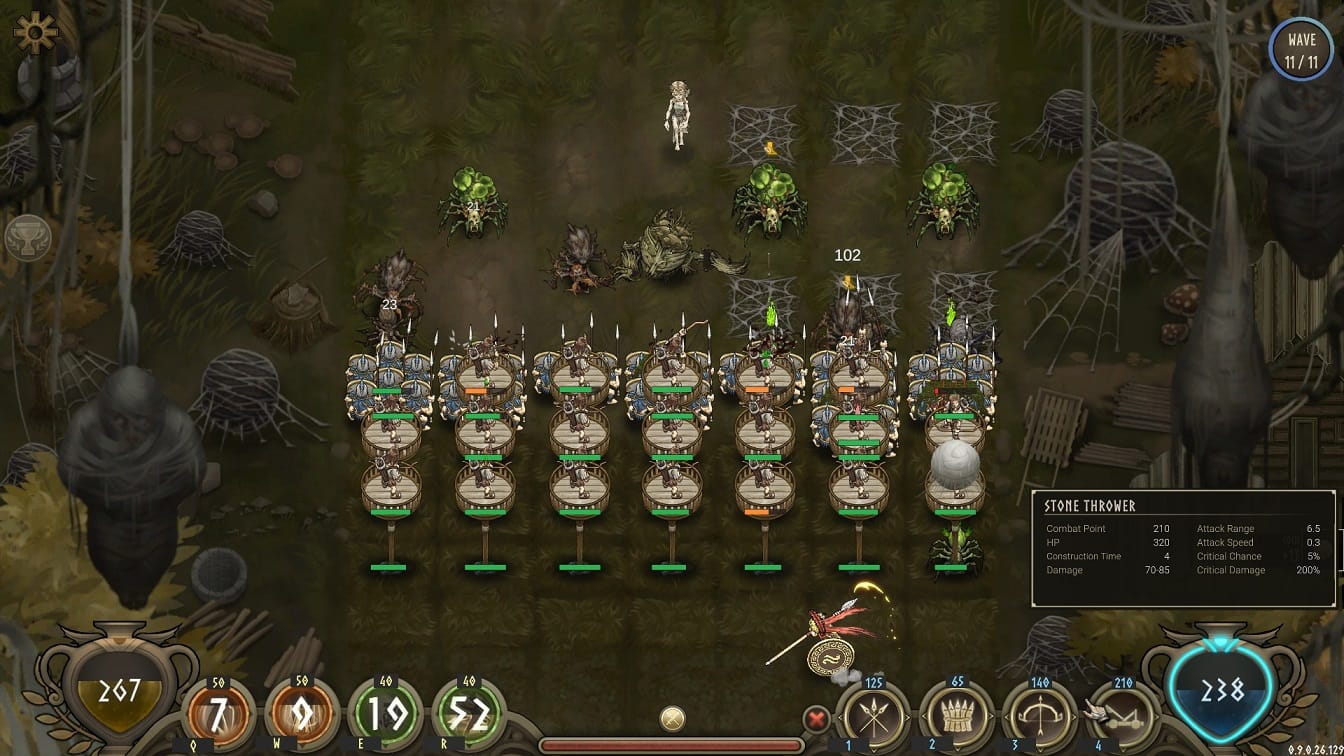
Legendary Hoplite
On his deathbed, the legendary King Odysseus revealed a secret - Ithaca, the city-state he founded, houses a powerful divine artifact. The minions of the Underworld, taking advantage of the King's death, swarm into Ithaca in hopes of claiming the artifact on behalf of Hades. With the city descending into chaos, it falls to one man - Dio, a classical hero in the vein of Perseus - to organize the remaining soldiers of Ithaca and repel the Underworld hordes.
Legendary Hoplite is a hybrid action RPG and tower defense game. Enemies pour in from the top of the screen, travelling down seven lanes on a route to attack the gates of Ithaca. Dio defends the gates with a pilum and sword, both of them blessed by the primordial gods. But one man can't fight an army, so Dio also has to recruit soldiers to defend the gates - first phalanxes, then archers, light cavalry, and more exotic units. These soldiers block enemy lanes, giving Dio a chance to focus on the greater threats.
Completing levels means balancing the action and strategy aspects of the game. Dio is powerful, but he's not without limits - both regular attacks and special abilities drain his stamina, and he'll need to take periodic breaks from combat to recover. Defeating enemies will allow Dio to recruit more men, but there are few breaks in the action so the player will need to set up their defenses while fending off the enemy.
Legendary Hoplite is a fairly hard game, especially when bosses get involved. Bosses and other powerful enemies have special abilities that they can use to incapacitate Dio or quickly blast through the player's defenses. There's limited ability to grind in Legendary Hoplite, so failing a level is generally a matter of poor strategy rather than being under-leveled. There is one saving grace: A player who fails at a boss fight can always restart from the boss with an equivalent amount of resources.
Legendary Hoplite is available for PC via Steam. A copy was provided for this review.
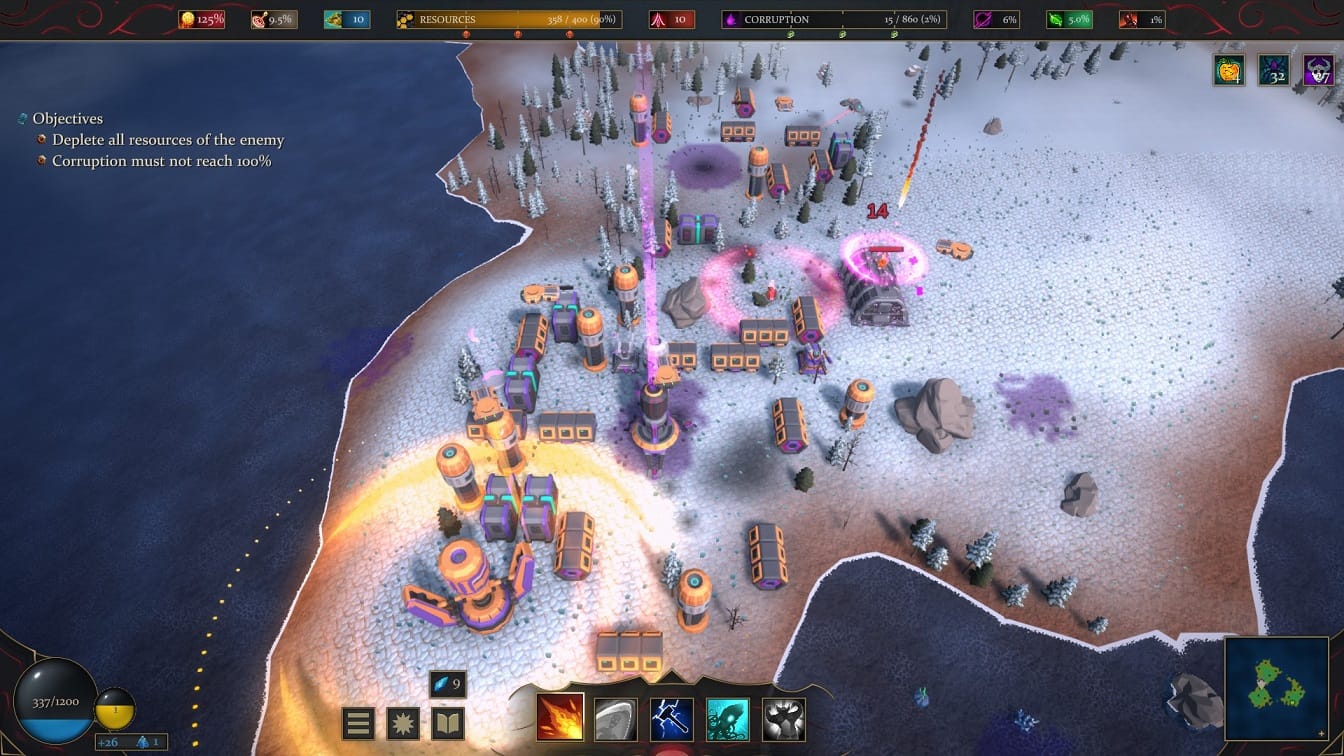
Gods Against Machines
An army of machines has descended upon your island domain, constructing strange buildings that are transforming the land into something twisted and alien. As a last-ditch effort to save the world, Gaia, the spirit of the earth, has awakened the deities of the elements to drive the robotic invaders away. As one of those deities, your goal is to deplete the enemy's resources by destroying their buildings and drones - and quickly, before the corruption spreads too far.
Gods Against Machines looks like a base builder, but it's not - at least not from the player's perspective. The computer is attempting to build a colony on an island, and your mission is to destroy it in order to limit the corruption spread by its terraformers and to drain its resources until it is forced to retreat. The player does this by casting damaging and summoning spells, which they can upgrade in between islands.
There's a definite old-school vibe to Gods Against Machines, with an aesthetic and gameplay style that recalls PC games of the late 90s and early 2000s. The gameplay loop is simple - the enemy places buildings that spawn enemies or protect the terraformers, and the player destroys them while protecting crystals that provide mana. Many spells can be partially automated, and clearing islands means monitoring the map for new developments while managing resources.
Gods Against Machines can be very engaging, but it bears investigating if this is the kind of game you want. It is closer to an RTS than a base builder or god game, so if you're looking for the latter then you should probably try the demo before buying.
Gods Against Machines is available for PC via Steam. A copy was provided for this review.
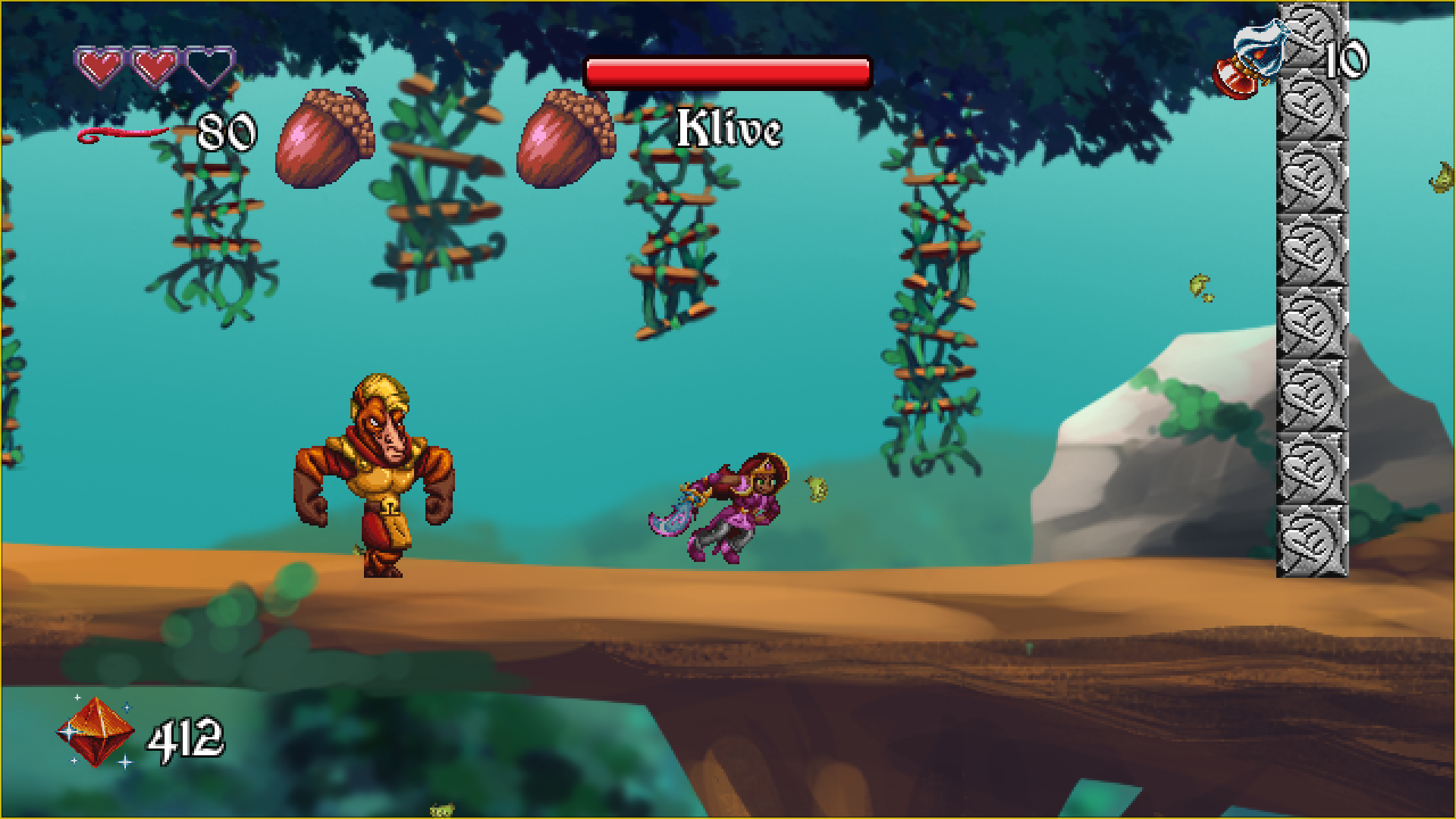
Arzette: The Jewel of Faramore
Ten years ago, the demon lord Daimur very nearly conquered the Kingdom of Faramore. The denizens of Faramore narrowly stopped Daimur, sealing him in a magic book using the Jewel of Faramore. Now, thanks to a traitorous noble, Daimur has been set free to terrorize the kingdom once again. With the "hero" of the last struggle unwilling to do his part, it's down to Princess Arzette to collect the shards of the Jewel from Daimur's minions and banish the demon once again.
We really need to start with the visuals this time. Arzette is a graphical spoof of Faces of Evil and The Wand of Gamelon, the notorious CD-i Zelda games. Both the in-game visuals and the cutscenes are close matches, with hand-painted backgrounds and animation that recalls the golden age of MSPaint. Arzette also strives to capture the feel of those games, with wild characters and over-the-top voice acting.
From a mechanical and design perspective, Arzette is what I would call a "Shantae-like" - discrete, mostly linear levels that the player can re-explore after gaining new powers in the style of a Metroidvania. The player will need to scour levels for items that enable new level interactions, beacons that unlock new levels, sacred candles to clear the path to bosses and upgrades, and ultimately shards of the Jewel of Faramore. The way the game controls is very old-school and may take a bit to get used to, but overall the game is very forgiving and should offer a respectable but reasonable challenge to most people.
Don't mistake Arzette for a gimmick - this is a very good platformer and fans of the Shantae games in particular should definitely pick it up.
Arzette: The Jewel of Faramore is available for Nintendo Switch, PS4, PS5, XBox Series X/S, and PC via Steam. A copy was provided for this review.
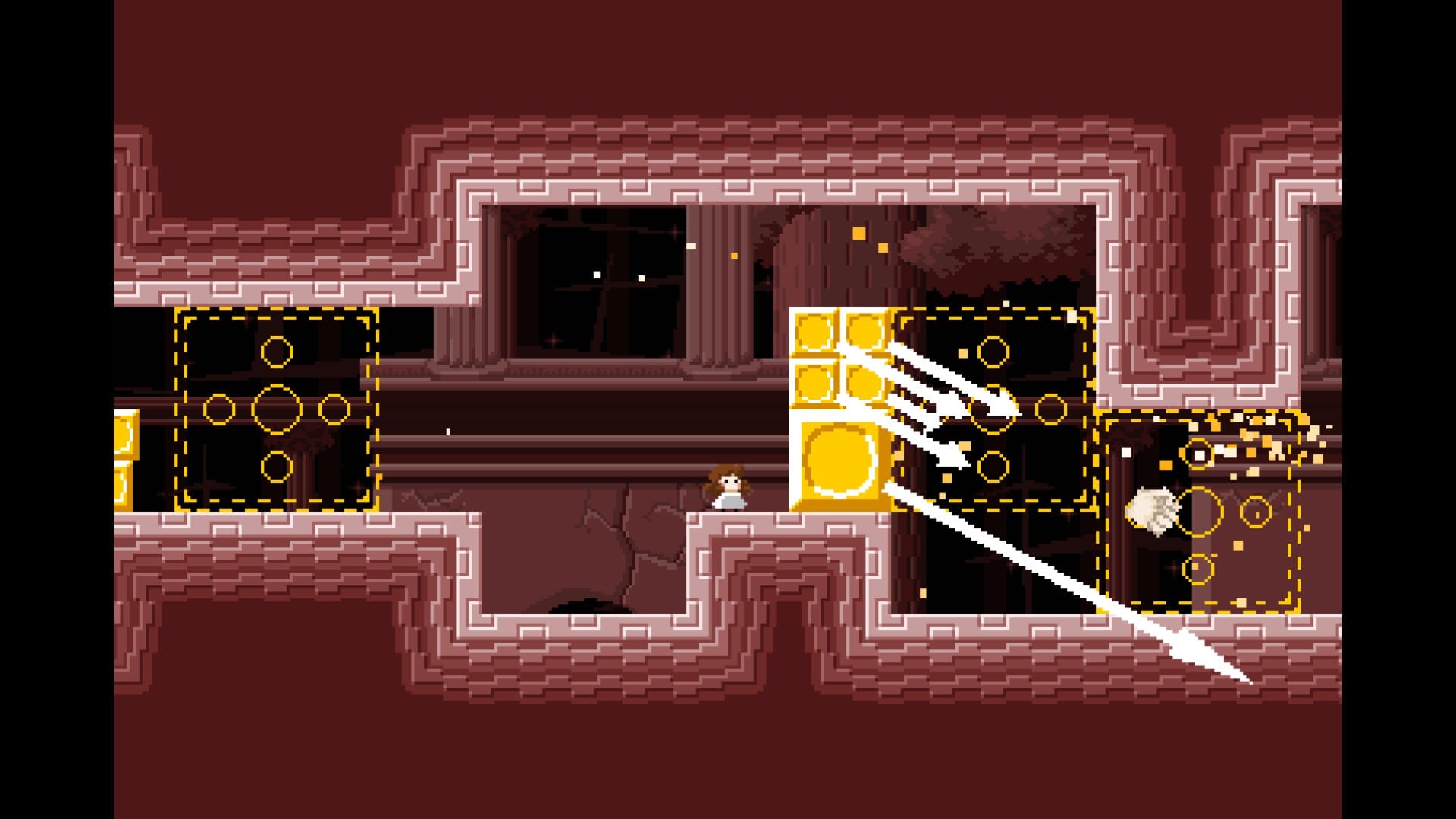
Fantastic Fist
You've just had both of your award-winning arms stolen by a vindictive witch. The good news is that you also have access to a magical floating fist which you can control with your will. Using the fist in concert with your still functional legs, you'll need to go on a journey to return your arms to their rightful owner.
Fantastic Fist is a puzzle platformer with a dual-control setup. The keyboard controls the protagonist, while the mouse summons and directs a disembodied fist. The fist can be used to break blocks, move objects, flip switches, and manipulate various other features. The controls are tight - the protagonist has a bit of a floaty jump, but you'll want that for some levels.
There's a lot of variety in the stages you must trek across. You'll start off dealing with basic physics objects, but in subsequent levels, you'll see blocks that move in specific patterns, wind currents that push the protagonist around, blocks that turn on and off to allow or prohibit movement, thorny plants that pop out of the ground in certain places when struck, and much more. Manipulating these obstacles is intuitive, and anyone who's ever played a puzzle platformer will get a handle on the mechanics in short order.
Levels in Fantastic Fist are short and there are plenty of them. It's a good game for short bursts of play, but there are also enough secrets scattered around the levels to please completionists.
Fantastic Fist is available for PC via Steam.
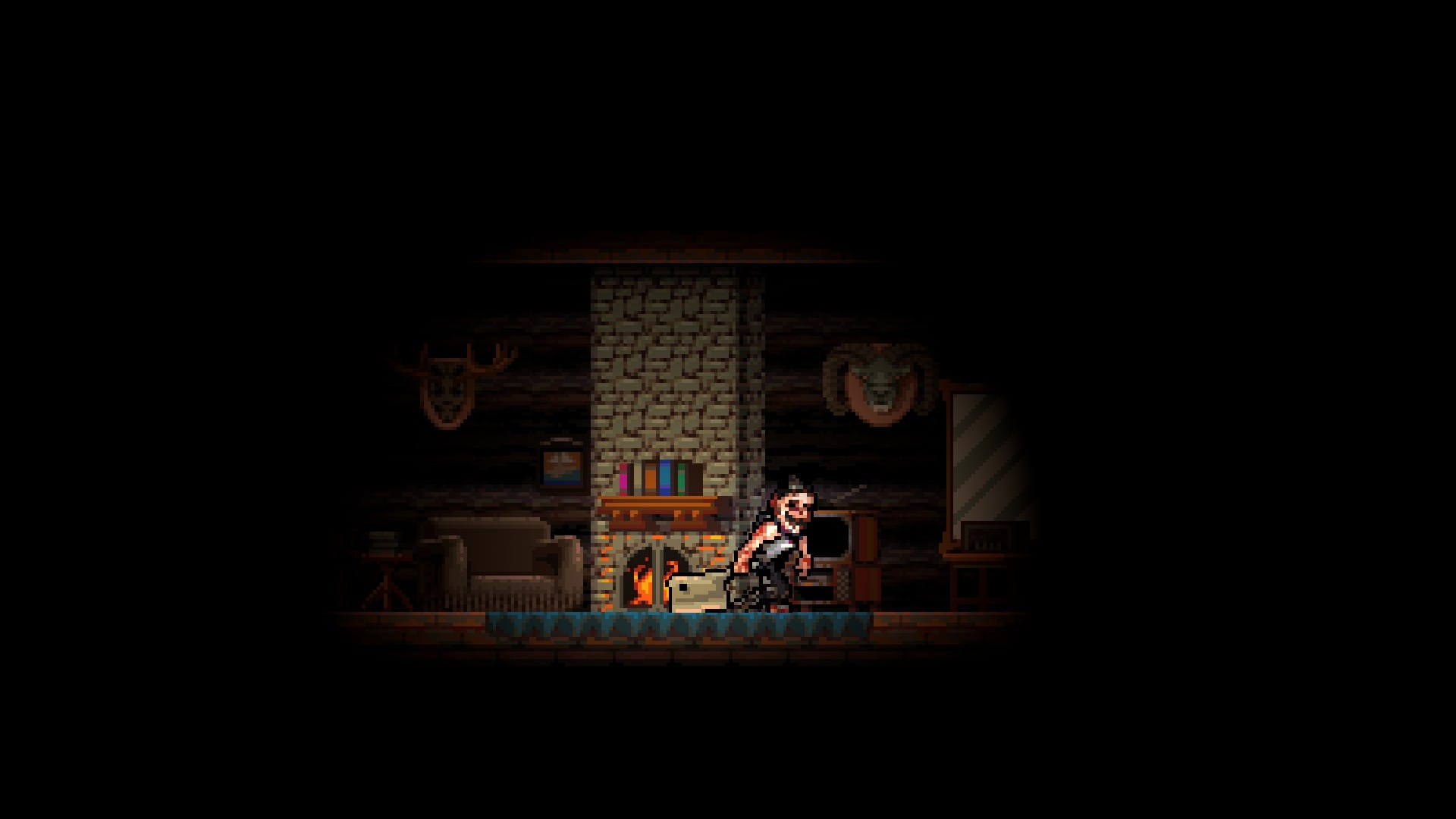
Terror at Oakheart
One year ago, the town of Oakheart was plagued by an ice cream man turned serial killer known only as Teddy. His reign of terror finally came to an end when one of his prospective victims gunned him down, returning peace to Oakheart. What nobody knew was that Teddy himself was a victim of a far greater evil - a beast from beyond the stars that was using him to harvest fresh meat. Now the beast hungers again, and Teddy is back from his grave to begin the hunt anew.
Terror at Oakheart is a side scrolling survival horror game that definitely draws a lot of inspiration from the first Clock Tower game. The player controls different characters (including the killer) at different points. Most characters don't have any combat abilities and are tasked only with solving simple puzzles. When controlling an armed character, the game adds some basic combat mechanics - dodge, shoot, reload, repeat. There are a few bosses, and they can be a real challenge even if you've figured out the combat loop.
The key draw is the aesthetic. Terror at Oakheart combines elements from vintage slasher movies and cosmic horror, giving it a very visceral feel. The animations are incredibly detailed, far more so than we're used to seeing from pixel-based graphics. The most elaborate of those are saved for the game's spectacularly gory death animations. Splatter aside, the overall feel can be very creepy and even quite subtle at times.
In the end, Terror at Oakheart is a game for fans of the films and fiction that inspired it. The game itself is quite basic, so the major feature lies in the spectacle and the scares.
Terror at Oakheart is available for PC via Steam. A copy was provided for this review.
